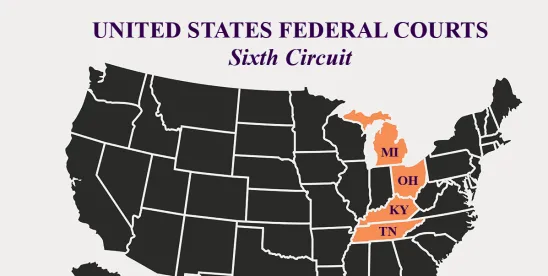The Supreme Court’s recent spate of high-profile decisions gives Court watchers much to process. At this blog, we hope to explore many of those decisions as summer progresses. In the meantime, we note a couple details from the Court’s Order List this week following its “clean-up conference.”
I count 30 cases the Court granted, summarily vacated, and remanded to the courts of appeals (GVR’d). These were cases similar enough to Loper Bright, Rahimi, Erlinger v. United States, and other fresh decisions to merit a new look at the circuit level. Two Sixth Circuit cases were GVR’d, both with instruction to apply Erlinger—Justice Gorsuch’s opinion that the Fifth and Sixth Amendments and Apprendi require a jury to find a defendant’s past, separate offenses before imposing the Armed Career Criminal Act’s mandatory minimum sentences. In those two unpublished decisions, United States v. Thomas and United States v. Cogdill, the Sixth Circuit had affirmed the findings of ACCA-predicate offenses by a district court, not a jury. Critically, however, both the Chief Justice and Justice Kavanaugh (joined by Justice Alito) stressed that violations of the right Erlinger recognized “are subject to harmless error review.”
Further down the Order List, Justice Thomas and Justice Sotomayor wrote separate opinions related to two cert. denials in Sixth Circuit cases. First up, Justice Sotomayor addressed the “absolute immunity [of] a prosecutor,” highlighting the “limits” of such immunity and other “safeguards” against prosecutorial misconduct. This discussion arose from the case of Price v. Montgomery County, where the Sixth Circuit affirmed the dismissal of a §1983 action against a Kentucky prosecutor based on “a mix of absolute and qualified immunity.” Justice Sotomayor found it “difficult to see how” the prosecutor’s “destruction of evidence to thwart a court order” enjoys immunity.
Meanwhile, Justice Thomas dissented from the Court’s cert. denial in Allstates Refractory v. Su. In that case, the Sixth Circuit held that “the standard prescribed by the OSH Act [is] a constitutional delegation of authority” to OSHA. The Act empowers OSHA to make Rules it deems “reasonably necessary or appropriate to provide safe or healthful employment.” 29 U.S.C. § 652(8). Justice Thomas observed this is perhaps “the broadest delegation of power to an administrative agency found in the United States Code.” Justice Thomas would have taken the case to reassess the “intelligible principle” standard that limits congressional delegations of authority to the Executive Branch. Without joining the dissent, Justice Gorsuch signaled that he too would have granted review. And, as Justice Thomas noted, other Justices have also signaled interest in adding teeth to the nondelegation doctrine, but this was not to be the case.
Notably, Judge Nalbandian wrote separately in both Price and Allstates Refractory. He reviewed history and recent scholarship and came away skeptical of the vitality of a prosecutorial immunity defense in a §1983 case. Justice Sotomayor quoted his partial concurrence. Judge Nalbandian also dissented at considerable length (28 pages) in Allstates Refractory, detailing his view that the OSH Act’s delegation fails “even under the minimal requirements” of the “intelligible principal” standard.
Rounding out this eventful Order List, the Court granted review in 5 new cases. These include a free speech case, a case involving the FDA’s attempt to regulate vapes, an immigration case, and finally two consolidated cases on criminal sentencing under the First Step Act. The last cases are significant because the Supreme Court denied a petition out of the Sixth Circuit that raised the same issue, after six judges dissented from the denial of rehearing en banc. The Court is expected to issue three more order lists this summer, but any fireworks are unlikely.
Here’s to a happy Independence Day!




 />i
/>i

